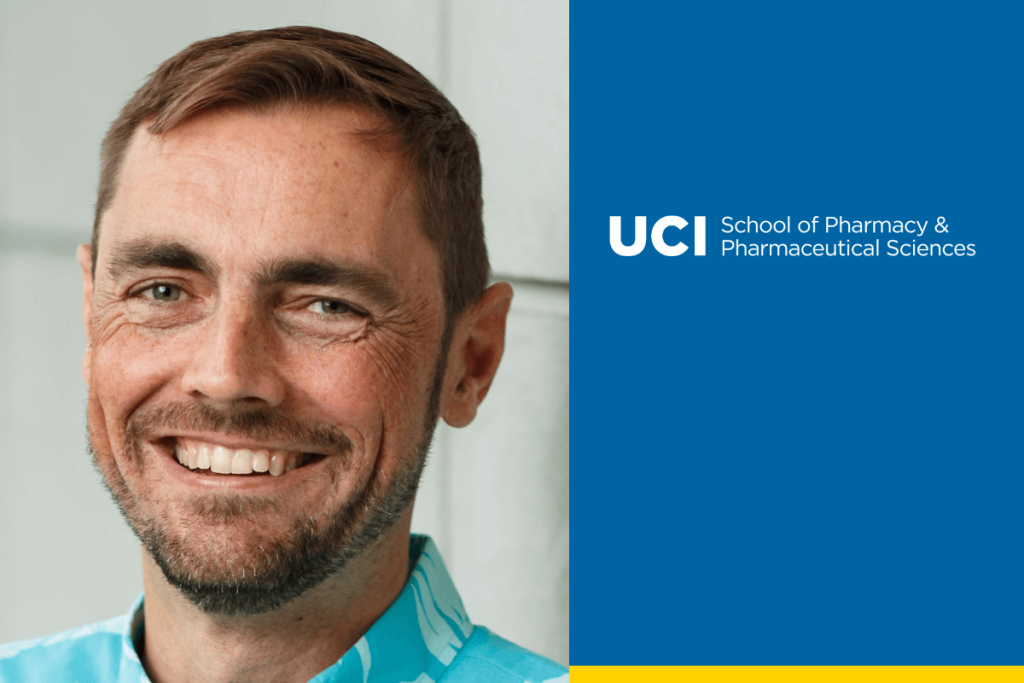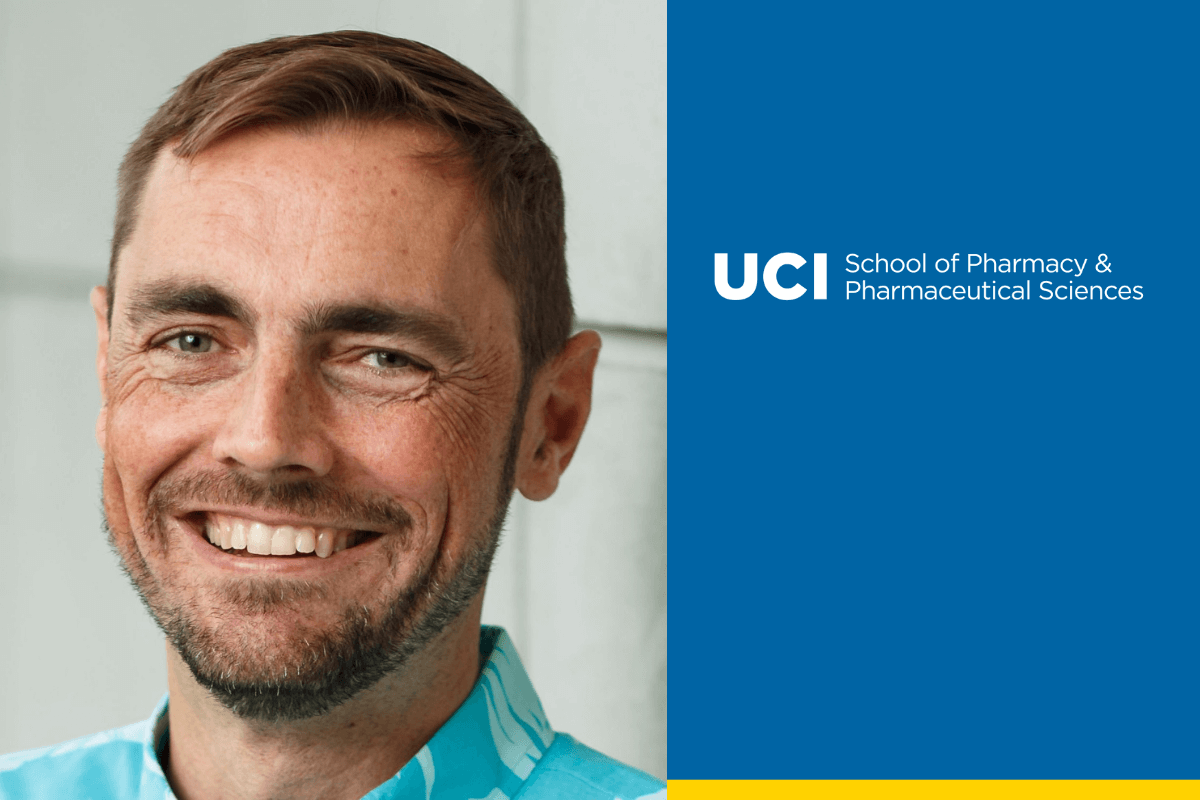
A passion for science and intellectual humility describes the spirit that Professor Brian Paegel, PhD, embodies as he pushes through new drug discovery technology development at the UC Irvine School of Pharmacy & Pharmaceutical Sciences.
Taking an unconventional, high-risk approach to drug discovery, Paegel and his team of 14 have engineered microchips that run searches for new drugs. In the midst of a 23-year journey, Paegel’s unrelenting approach has served him well. His most recent efforts to expand the druggable proteome received recognition from the National Institutes of Health with a $2 million Maximizing Investigators’ Research Award (MIRA) – a high honor that he was humbled to receive.
“This award is recognition both from peers and the NIH that a laboratory’s research activities are central to the nation’s biomedical research enterprise,” Paegel said. “I am very proud of the laboratory’s hard work toward delivering next-generation drug discovery technology. It has been a team effort!”
The NIH gift represents years of hard work and the support of a dream team of interdisciplinary collaborators both across and outside the UC system, including RNA chemical biologist Robert Spitale, a fellow professor at UCI; ribosome structural biologist Jamie Cate, a UC Berkeley professor of chemistry; and RNA drug targeting pioneer, Matthew Disney, Scripps Research professor of chemistry.
“Receiving the NIH grant is an honor that we do not take lightly,” Spitale said, “I’m incredibly proud to be a part of a team that is taking a bold approach to drug discovery and is being recognized and rewarded for such efforts.”
When asked about what makes UCI an ideal place for his work, Paegel expressed appreciation for the strength of the institution’s chemical and synthetic biology community, as well as the department’s generosity of the research endeavors of the Paegel lab.
“UCI colleagues have created a stimulating environment full of research activity in this area, including furnishing novel targets for investigation using our DNA-encoded library screening technology,” Paegel said. “We are tremendous beneficiaries of the neighboring Spitale Laboratory’s knowledge and technical guidance as we have started to develop new measurements of cellular physiology. And, of course, UCI attracts bright and motivated students who are a joy to mentor in the lab.”
Paegel recognizes that the work done by his team is no simple feat. Often more challenging than encouraging, the research requires them to push past daily setbacks – both minor and major – in efforts to learn from their trial and errors for the better.
“You have to make sure that you are passionate about your research,” Paegel said. “Science is more than 90 percent failure. When you’re operating at the frontiers of human knowledge, it can be very daunting. The only way to push through is to keep saying, ‘this problem is so cool – I have to come back and try again tomorrow.’”
